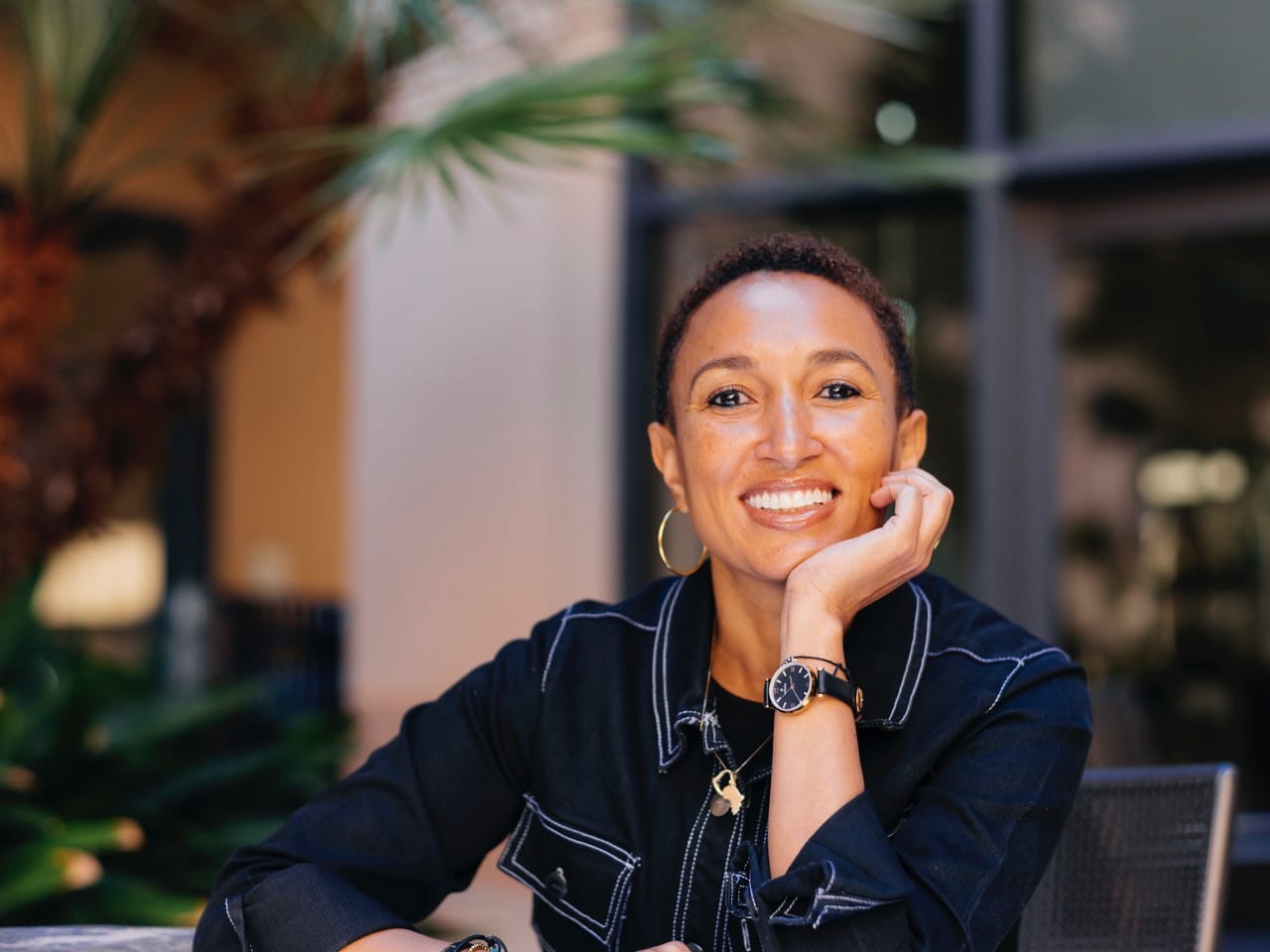Wandia Gichuru cannot wait for the day that AfCFTA becomes a reality, especially in the textiles and fashion space.
Most people start young. But while in her 40s, Wandia Gichuru’s journey into entrepreneurship was serendipitous and unexpected. Creating a truly Kenyan fashion brand, she now epitomizes a new generation of fearless entrepreneurs in the East African nation.
Before venturing into the fashion world, Gichuru spent over 15 years as an international development advisor, working for the government of the United Kingdom, the United Nations and the World Bank. But she always knew that she wanted to make a difference back home.
Into fitness in a big way and also a salsa dancer, she set up Vivo Activewear with a friend, Anne-Marie Burugu, in Nairobi in 2011, with a vision to create a Made in Kenya brand catering to women embracing wellness as a lifestyle. She went on to also set up an e-commerce platform onboarding Made in Kenya beauty and fashion brands.
From a single store in Nairobi, Vivo Activewear grew to include Vivo Woman, Safari and Zoya, curated to resonate with the contemporary African renowned for fusing style, comfort, functionality, and affordability.
Loading...
“Our vision at Vivo Fashion Group is to see Africa dress herself, as well as Africa dress the world. We believe that in addition to being great producers and ardent consumers of fashion, the time has come that we are also creators of strong African fashion brands,” says Gichuru.
The fashion label recently joined the Nairobi Securities Exchange’s Ibuka incubation and acceleration program.
“We want as many people as possible to join us on this journey. So, listing on the Nairobi Securities Exchange would be one way to do this, by allowing anyone who wishes to become a shareholder of the group.”
Expanding its footprint across East Africa and beyond is a pivotal component of Vivo’s strategy. Unlike merely exporting Kenyan styles, the approach involves tailoring offerings to suit each unique market it enters.
Gichuru emphasizes the importance of establishing partnerships with creators, designers, suppliers, and manufacturers in these regions, thus nurturing the industry ecosystem.
“Over 200 million East Africans get up and get dressed every day. It is hard to get accurate data, but in our estimation, less than 5% of East Africans wear any clothes that were produced in East Africa. So, the opportunities in the fashion sector are huge, and we are only scratching the surface,” says Gichuru.
As Africa prepares for a single trading bloc under the African Continental Free Trade Area (AfCFTA), Gichuru says this presents an exciting opportunity, especially in the textiles and fashion sector. She envisions the removal of barriers that currently impede sourcing and distribution across African countries, potentially opening doors to new African brands entering the Kenyan market.
“We cannot wait for the day that AfCFTA becomes a reality, especially in the textiles and fashion space. This will open doors for everyone in the sector in such powerful ways. We are desperate, for example, to make clothing using Kitenge fabric from Ghana. However, under the current tax environment, we would have to pay 50% duty on Ghanaian fabric, which makes it impossible to create a competitively priced product from it.”
For entrepreneurs like Gichuru, this impending reality holds the promise of uncharted growth. However, alongside this anticipation come the pressing concerns regarding the key challenges that must be addressed to facilitate the scaling of businesses like hers on the African stage.
“Hopefully, AfCFTA will address these kinds of challenges and we will be able to start sourcing from and distributing to countries across Africa. And vice versa, we will see all kinds of African brands enter the Kenyan market,” she says.
Gichuru’s venture, Shop Zetu, is also making strides in Kenya’s fast-growing e-commerce space. The platform is a one-stop shop for all things fashion, beauty, and accessories.
Her current focus is the East African and COMESA markets, where products can be more efficiently moved to and from Kenya.
The Vivo Fashion Group also places strong emphasis on diversity and inclusion. Over 70% of its 450 employees are women. Gichuru is also keen on promoting female entrepreneurs.
“Women in particular are sometimes afraid to come across as too ambitious or too confident. Which can work against us, especially when trying to raise capital. We must be clear about our goals and learn how to articulate them in a way that convinces people that we know where we are going, we know how to get there, and that they should join us on the journey.”
She advises aspiring entrepreneurs to be true to themselves and not let perfectionism or fear hinder their ambitions. She also emphasizes the importance of action.
“I have an incredibly strong bias for action. The advice I mostly give to younger entrepreneurs is to just get started! Don’t let ideas just sit in your head. Start! Execute! Put something in front of potential customers and get a reaction. You’ll either make a sale or you’ll get some feedback – or hopefully both. But it will get you one step further on your way to building a real business”.
As Kenya celebrates 60 years of independence, Gichuru believes that determination and resilience are central to keeping the country’s entrepreneurial spirit alive.
“We have a way of picking ourselves up and keeping ourselves going. And we are also lucky that we live in such a beautiful country, and have a great sense of humor – so no matter how difficult things are, the sun will still be bright and shining, and someone next to you is going to crack a joke and make you laugh!
Loading...
